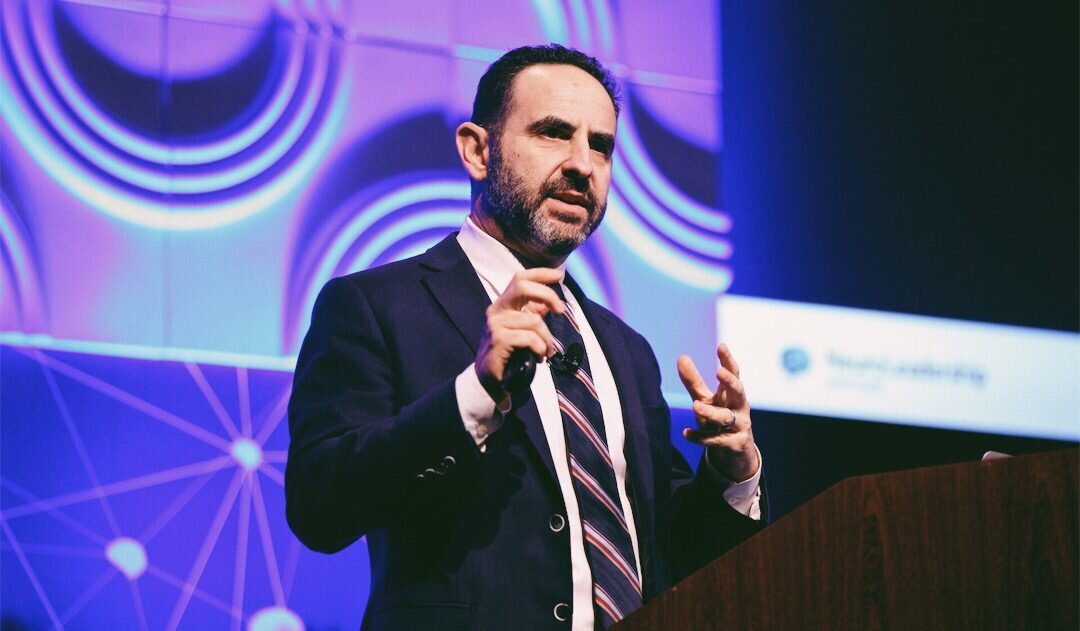As artificial intelligence becomes embedded in our daily workflows, a critical question emerges: Are we just teaching people to use AI, or are we empowering them to think with AI?...
Read More →
NeuroLeadership in the Media
As artificial intelligence becomes embedded in our daily workflows, a critical question emerges: Are we just teaching people to use AI, or are we empowering them to think with AI?...
Read More →
In Thrive’s series about the “Five Things You Need To Be A Highly Effective Leader During Turbulent Times”, Dr. David Rock (Co-founder & CEO of NeuroLeadership Institute) provides five most important things a business leader should do to lead effectively during uncertain and turbulent times.

Adam Mendler interviewed CEO and Co-Founder of NeuroLeadership Institute, Dr. David Rock, to gain a better understanding of the science behind leadership.

Dr. David Rock (Co-founder and CEO of NeuroLeadership Institute) interviews with Authority Magazine about his personal experiences and how leaders can navigate through challenging times.

“One year of COVID” are the hot takes of the moment, from “Sorrow and stamina, defiance and despair” to numerical breakdowns to seemingly never-ending partisan bickering, and all points in between. We are going to add our voice to the chorus of COVID-at-1 stories, hopefully not in a nails on chalkboard fashion, but through the prism of organizational learnings, culture shifts, and most importantly, brain science.

In this article from Business Insider, Dr. David Rock (Co-founder and CEO of NeuroLeadership Institute) provides insight on how leaders can manage their stress levels using neuroscience.

Ann Schulte, Procter & Gamble’s Global Leader of Learning and Leadership Development, discusses how she turned to NeuroLeadership Institute (founded by Dr. David Rock) to develop a program that developed team morale.

The pandemic has played havoc with our mental health, and a significant factor in our malaise is that we’re missing our people—terribly. We long for friends, family and colleagues. We are hardwired for connection, and with the need for social distancing and the reality of being away from the workplace—and everything else—for such a long period of time, we are struggling.

The extraordinary circumstances of the pandemic have given new weight to the end-of-year break, as the line between work and home has blurred more than ever for many workers. Some companies are trying to encourage their employees to disconnect from their jobs more than usual this year, as holiday routines and connections have been upended for many. Jim Mathis runs the small ad agency, Adwerx, in Sioux Falls, South Dakota. He’d normally have a full calendar during the holidays: the company party, visits to extended family and planning for a new year staff retreat. But this is 2020. “There’s just this lingering cloud over everyone that is just getting hard on folks,” he said. He’s encouraged his seven employees to take extra time off this week and next – they have unlimited vacation. “Definitely recharge your batteries,” he said. “We all need to do that. And this year, that’s been stressful, we probably need it more than normal.” Sheila Ryan is the Chief People Officer at Clear Capital appraisal services in Truckee, California. During this darker-than-usual end of the year, she’s trained managers to identify potential signs of burnout among their 600 employees. “You look for changes in behavior – were they really participatory and vocal in your meetings and now they’re being more quiet?” she said. “Are they getting more slouchy and turning their camera off a lot more?” If so, managers at her company have been reminding staff of mental health resources like the Employee Assistance Program and encouraging staff to take time off. Ryan said more people at her company have taken vacation days this holiday season than usual. Breaks are important for cognitive function, said David Rock, co-founder and CEO of the NeuroLeadership Institute, which applies neuroscience to work. “With the brain you need to literally let networks rest for a while for them to regenerate and come back energized,” he said. The brain gets tired out by repetitive stress, like constantly worrying about a pandemic, or thinking about work at all hours of the day, he said. “One thing we know about fitness is you don’t do three hours of repetition on the same muscle without stopping,” he said. But even with time off, pulling our brains out of work is easier said than done these days, said Jaclyn Jensen, who teaches organizational psychology at DePaul University. Because millions of workers have now combined their home with their workplace, “your mind is always at work, even if you are not actually sitting in front of your computer working,” she said. Finding a new routine during time off can help rebuild those boundaries, she said: spending time outside, reading or scheduling those things you don’t have time for during a busy work week. And by all means, stay away from email. “Several days ago, in anticipation of the holiday I did take my email off of my phone, and it is freeing,” she said. So much so, she might even leave it that way after the holidays are over. This article originally appeared on Marketplace.org.

What can you count on coming your way in 2021? More ambiguity, uncertainty and change! Hooray! As a leader, your challenge is to increase your capacity in the face of it all, because traditional approaches to leadership development aren’t keeping pace with the kinds of complexity we now face. Currently, fewer than 18% of leaders have the qualities of mind to optimally lead in volatile, uncertain, complex and ambiguous (VUCA) environments (Hall & Rowland, 2016). Fortunately, many bright people have been working on this very agenda over the past decade or so. What are they cooking up for us for 2021?

Join millions of employees in creating culture change at scale by reaching out today.

In 2007, David and Lisa Rock and their team had been working in leadership development and executive coaching for ten years, when David coined the term “NeuroLeadership.”ef

North America
Africa
South America
Asia
Europe
Australia
© NeuroLeadership Institute 2025. All Rights Reserved
This site uses cookies to provide you with a personalized browsing experience. By using this site you agree to our use of cookies as explained in our Privacy Policy. Please read our Privacy Policy for more information.